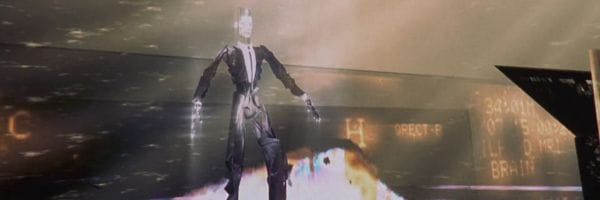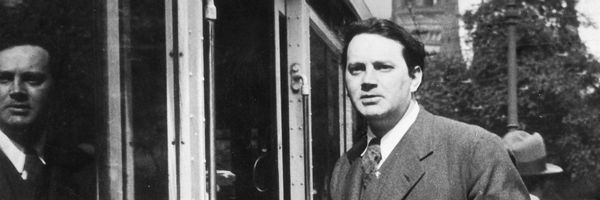Week 10: Conclusion

We end with a look to the past, both in shifting back from 2019 novels to a 2013 one and in looking at what is a bit of a historical novel already: Thomas Pynchon's Bleeding Edge. Over the past ten weeks, we touched on various challenges of writing truly contemporary narratives in this high-tech context. A basic issue is time. It is nearly impossible to write realistically about the present or immediate past in any context. Too much is unknown. We saw elements of this across various texts as they either responded to or preceded major non-fictional reveals in the 2010s, and the resulting impact of a given author's relative knowledge.
Due to the rapid growth of technology, which means the recent past appears too past-tense, writing about the present now often takes the form of a near-future speculative narrative. This offers an opportunity to write about what exists now and what is on the verge of release, but with considerable freedom to add in anything needed to make the story more exciting. Thomas Pynchon goes another route with Bleeding Edge: looking back just over a decade to the knowable past of 2011. As he shows, though, such moments are still not yet fully knowable, and never will be. As his ex-certified fraud examiner Maxine Tarnow tries to figure out what is going on, more and more she finds only a proliferation of conspiracy theories. After September 11th, which looms on the horizon through the first half of the book, hindsight does little to connect the threads of her investigation. Nothing is substantially more compelling than the endless claims spreading online or sprawled on dollar bills, what Maxine's friend Heidi regards as "the public toilet of the U.S. monetary system."
As an aside on pattern recognition: This post is unintentionally going out on 9/11. I knew I wanted to end on this text, but I started in early July planning around a 5-week course. I ended up with this 10-week sequence, set to start on July 10. I decided Fridays would be a good day of the week to send out involved essays which link out to possible reading. Only later did I start jotting this all down on my calendar, revealing this now-inevitable conclusion. The novel functions similarly, with our historical knowledge hanging over the mid-2011 Manhattan setting as a form of dramatic irony. Maxine's "tendency to look for hidden patterns" only draws stronger attention to the way various details – some real, some fictional – hint at what awaits. The overwhelming presence of that catastrophic event, however, obscures the other shifts in the novel.
Bleeding Edge is set in a world of deep hyperconnectivity, though Maxine remains a bit of an outsider to it. Early on, she expresses fluency with online search, but also offers up as a lingering trade secret the value of the Yellow Pages. As her investigation guides her through the dejected world of post-dotcom burst Silicon Alley, discerning between manual and automated transmissions of data becomes essential, though amid a comical refusal to move entirely in that direction. One character Maxine connects with is a professional Nose, who has an actual super-human sense of smell and is named, appropriately, Conkling.
A major hyperconnected fictional addition is the virtual world created by two acquaintances, known via a classmate of Maxine's two sons. DeepArcher (pronounced "departure") is a dream-like graphically-enhanced exploration of the Deep Web, and relies on random number generation derived from shifts in the stock market. DeepArcher is a fantastical departure from the "meatspace" of Manhattan, a source of obscured information, and potentially a holding space for departed people. It is not, though, a place of eternal memory. By design, it "forgets where it’s been, immediately, forever." Between that and the unreliability of the rest of the web, memory is still on us.
The central story is kicked off by Maxine's friend Reg getting a weird documentary contract. A computer security firm, hashslingrz, has given Reg near total access to document their success. While the industry overall is in a slump, hashslingrz is thriving, with each other company failure being only an opportunity for acquisition. Reg remarks, "Which is the angle I want to take. Survive and prosper. Upbeat, right?" He has some concerns, though, that the company is up to some shady business. Maxine's skeptical reaction to the project reveals a possible purpose for the assignment, and a core challenge for the truly contemporary writer: “But … wait … a movie about hashslingrz? Footage of what, nerds staring at screens?”
Over the past several weeks, we have seen various instances of writers working around this, but the core problem remains: When a story is no longer built around people moving around and doing things in in the world, but, instead, sitting for hours in front of a screen, there may be much going on personally, socially, spiritually, etc., but it becomes hard to compellingly depict. For a real-world reference, consider the recent documentary TFW NO GF. Though based around men discussing years of social isolation and slow growth through online communities, storytelling standards require that the subjects move around town, through parks, bridges, bars, in order to tell their stories to the cameras.
Reg, similarly, has little to show within the visual medium of a documentary. He jokes that the "Original script had a lot of car chases, explosions," but the reality of the company is that most of the work is hours of nerds staring at screens. Making a story out of that is Reg's Sisyphean task, but what matters is most likely just the raw footage, which would document extensively the boring but seemingly above-board work of the company. The true story of Bleeding Edge exists below this world of appearances, where a thriving computer security firm would be particularly equipped to keep it. Unlike some of the other texts covered over the past ten weeks, Bleeding Edge does not deeply immerse its story in this hyperconnected world, but it does make the case that one has no idea what is going on without at least glimpses into this inhuman undercurrent.
The central historical shift in the end is not the loss of life itself but all that it pulls to the surface. As I discussed with Joshua Cohen and his review of the novel, he makes the claim that Bleeding Edge excels because Pynchon sets the novel at this moment where constant connection becomes essential, because suddenly "to lose touch is to die." Cohen suggests further that Pynchon's vision here is that neither the new online world nor the nation concepts it is replacing are as truly real as family, which is, in the end, all that truly matters.
I find this framing largely convincing, but consider as well my post-Internet idea around the challenge and importance of imagining future generations. This new world imposes itself on Maxine, who ventures deep into cyberspace but nevertheless is more intimately comfortable in the world of the Yellow Pages. Her kids, however, are growing up into this. As we see the rapid rise of cell-phones, Maxine discovers that her kids – whose growing up is a source of considerable anxiety for her – are way ahead of her. Already Ziggy and Otis are texting silently among their studies, yet where the historical remove of the novel allowed the Twin Towers to loom large over the narrative as a known conclusion, their futures loom larger as an unknown conclusion. As everything else we know between 2011 and 2013 then approaches, we are left to anticipate our inevitable futures.
Somewhere someone is staring at a screen containing a key to recognizing the pattern, but who to record, and how? And who will watch it amid the endless proliferation of recordings? As we have focused on the 2010s in these past ten weeks, one of the most prominent events looming over our timeline is the release of Snowden documents beginning in mid 2013. What came before, what after, and what cut so close as to be impossible to plot around that precise knowledge? Though "Black Box" (discussed in Week 4) came out in 2012, Jennifer Egan's insight preemptively nuances the dynamics of the decade. It was confirmed that electronic surveillance systems justified for deployment overseas were being used by the United States government on citizens at home. As Egan anticipated in her Twitter story, the primary audience for much of our data is us, fellow agents fashioned as human security devices. While we communicate with each other, much more is communicated to and among our machines.
As Pynchon understood, try as we might to live on as 20th century detectives walking the streets of meatspace, the real story is in that undercurrent, and the necessary protagonists of the literature which is yet to come are those who can comfortably navigate that world.
This is the conclusion of a 10-week course of study in the intersection of Literature & Hyperconnectivity, which included the posts on this site and live Zoom discussions with select authors. To keep up with future projects, sign up below.





